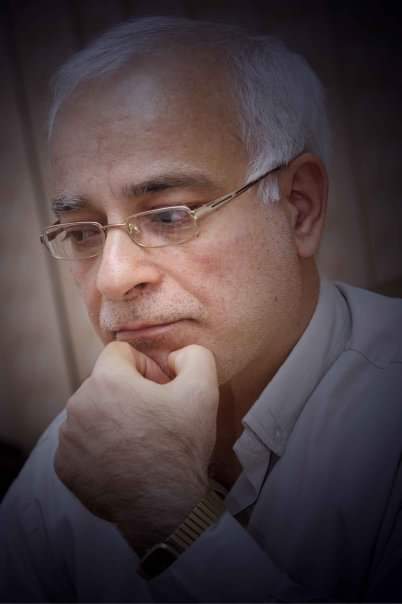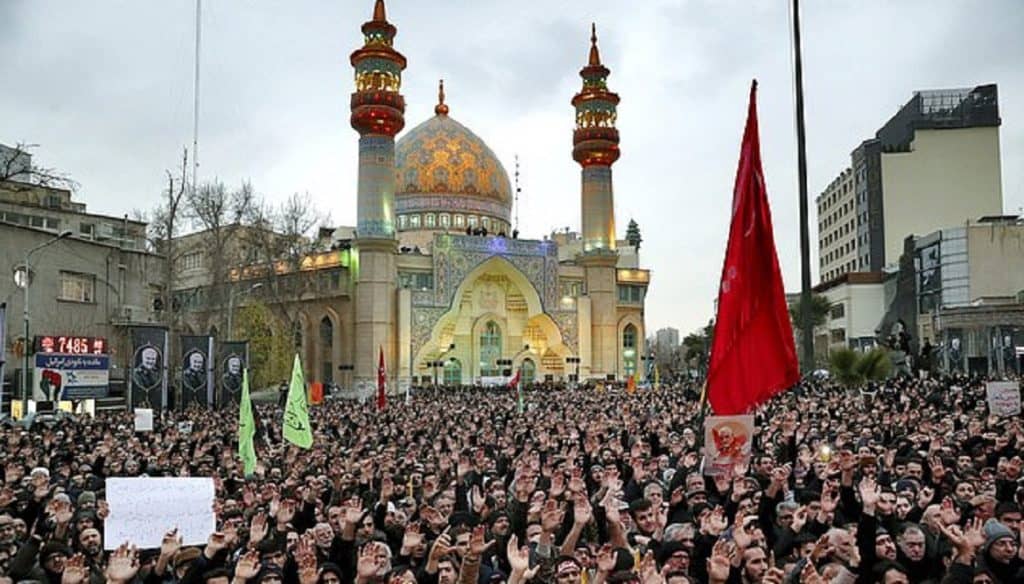Interview with Hassan Beheshtipour
After the assassination of the commander of the Al-Quds special forces, Islamic Revolutionary Guard Corps Qasem Soleimani, Tehran and Washington were extremely close to war with each other. However, under pressure from the international community, the parties to the conflict probably decided to postpone the act of revenge and focus on solving internal problems.
In particular, the main concern of the White House administration is the upcoming presidential election, thanks to which Donald Trump expects to move to a second term. In this regard, the US president is currently aiming to enlist the support of a large number of electors, for whose loyalty there is a fierce domestic political struggle in Washington. In addition, Iran is busy holding parliamentary elections, the results of which can predetermine the continued existence of the Ayatollah regime. For this reason, the Iran-US conflict was put on hold. But, as experts say, the situation can change dramatically at any time.
Especially for World Geostrategic Insights, Denis Korkodinov talked about this with Hassan Beheshtipour, Iran’s leading political analyst, information security specialist.

1. After the assassination of the Quds commander of the Islamic Revolutionary Guard Corps, Qasem Soleimani, Iran and the United States exchanged a series of missile attacks. In addition, an American military plane crashed in Afghanistan, allegedly carrying the head of US intelligence group Mike D’Andrea. In this regard, is it possible to consider that Tehran fully avenged Washington or should we expect another escalation of the conflict between the countries? Does the red flag of revenge, which was hoisted on January 3, 2020 almost immediately after the assassination of Qasem Soleimani, hang on the dome of the Jamkaran mosque in Kum? Why did Donald Trump decide to kill Soleimani?
HASSAN BEHESHTIPOUR: Iran has denied any information about involvement in the crash of an American military aircraft in Afghanistan, as the Taliban have already admitted their responsibility for the incident.
According to objective sources, at least two people were in the crashed plane of the US armed forces, whose corpses were evacuated by the Americans. The information that among the dead was the head of the US intelligence group Mike D’Andrea is not confirmed, despite the fact that this information was presented in many media. Therefore, the news of the death of Mike D’Andrea, most likely, is just a rumor. However, the death of a high-ranking American intelligence officer can not only be confirmed, but also refuted, since no one saw Mike D’Andrea after the plane crash in Afghanistan, and now its exact location is unknown. It is also unknown whether he is alive.
The red flag of revenge is still hanging on the dome of the Jamaqran mosque. In this regard, one of our high priests said that we did not raise the banner of revenge in order to remove it and forget about the death of Qasem Soleimani. Iran will take revenge constantly. And this revenge is carried out not only by the Iranian people, but also by all the Mujahideen in the Shiite world, who resist pressure from the United States and Israel.
White House head Donald Trump and his advisory group in the State Department, the Pentagon and the CIA have mistakenly evaluated Iran’s soft power in the Middle East. They thought that with the assassination of Soleimani, they could put an end to Iran’s presence in the countries of the region. However, they did not want to believe that Iran’s influence in Iraq was not connected with the American occupation. On the contrary, Iran’s influence in Iraq goes back to the inextricable link between the Qum seminary and the Najaf seminary. Almost the majority of Iraqi officials today are Shiites and Kurds who lived, studied and started a family during the Iraq war against Iran. The Barzani family in Iraqi Kurdistan is a compelling example of this.
The blow to Islamic resistance in the region in no way could lead to an end to our struggle.
This struggle will continue on the basis of a historical imperative to confront the enemies of Iran.
2. February 21, 2020, parliamentary elections were held in Iran. Washington can use this event as an occasion to escalate the conflict. In particular, the United States will probably recognize the election results in Iran as invalid, which will serve as the basis for the introduction of new sanctions against Iranian politicians. In addition, the Iranian opposition is likely to attempt social unrest. What do you think about this? What difficulties might the new Iranian parliament face?
HASSAN BEHESHTIPOUR: The Iranian people know how an extra-parliamentary presence in parliamentary elections helps strengthen Iran’s global authority. Therefore, at least more than 50 percent of those who have the right to vote came to the polls. If these people run for election, the US cannot question the results of the popular vote.
Whatever the results of the Iranian elections, this has a significant impact on Iran’s relations with other countries, because the election results determine the future of the Islamic revolution.
The current US sanctions against Iran are so wide and varied that the new sanctions are unlikely to change anything and, moreover, will not be able to seriously affect the further Iran-US confrontation.
In the Iranian elections, parties play a secondary role. Most of the various factions, including fundamentalists, reformists, modernists, supporters of justice with different views, are leaders of Iranian society. There were also independent candidates who were more likely to succeed in small towns. They determine modern politics, which is based on strict adherence to the ideals of the Islamic revolution and is aimed at creating a “large Shiite family” under the auspices of Iran.
The Iranian parliament plays an influential role exclusively to transform our country into a nuclear power.
In turn, if the American and European sides fulfill their obligations, Iran agrees to introduce a temporary moratorium on uranium enrichment and reduce the number of existing centrifuges. However, because the US and the EU are not ready to adhere to the nuclear deal, Tehran considers itself entitled to enrich uranium beyond acceptable values.
3. Israel, based on its military doctrine, can launch a preventive nuclear strike on Iran if Tehran actually produces nuclear weapons. At least Tel Aviv has repeatedly threatened the Ayatollah regime with a nuclear strike. Is Israel capable of actually delivering a nuclear strike on Iran? What, then, can Iran answer? 000⁰⁰ How likely is the escalation of the Iran-Israel conflict?
HASSAN BEHESHTIPOUR: Tel Aviv has at least 200 nuclear bombs and has the potential to use them for a preemptive strike against any targets that will be identified as a threat. However, the territory of Israel is very small, in connection with which it is completely within the reach of Iranian ballistic missiles, which are a deterrent. Meanwhile, the threat of a nuclear war between Israel and Iran has been real for the past 40 years and in modern conditions, the risk of a nuclear conflict between countries is extremely high. However, the international community continues to negotiate in order to avoid a global catastrophe caused by the use of weapons of mass destruction. While such a policy allows you to be at the “red line” without crossing it. But at any time, the situation may change.







